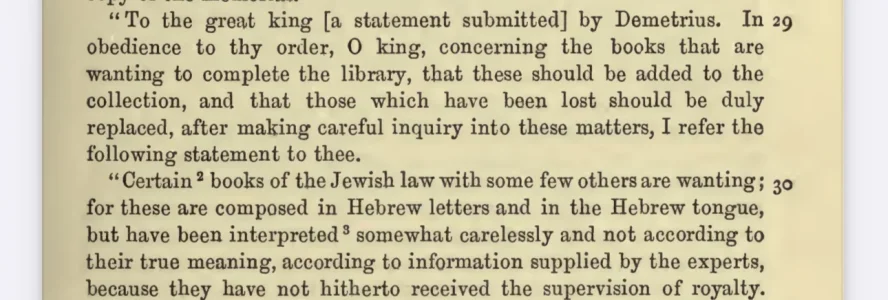jeremiah1five
Active Member
The Hebrew Scripture.Sam Shamoun is a former Protestant that in recent years (several years now) begun to embrace Roman Catholicism. I include him here that he might "weigh in" here on this topic. I've tried to engage Sam from "time to time" recently with no success. Not that he has to respond to me. He doesn't.
So I will begin this argument that I don't believe most people understand..... Please join in... (Anyone and everyone)
If you're going to appeal to Polycarp, Eusebius, Justin Martyr, Augustine, Jerome and etc..... then you must deal with the "authority" of their positions in the Church. (The Church Universal/Catholic)
I'll begin to define authority as seen in the practice of Christianity in the "early church" assembly and relative teachings.
My position is that the apostle Paul left the keeping of the "church" to Timothy and Titus. We do not know what happened to Timothy and Titus. They basically "disappeared" in the surviving narrative of the early church assembly. There is a reason for this.
The Church at Jerusalem was destroyed when the Temple was destroyed in the conclusion of the 70 weeks of Daniel before 100 AD. In that destruction, there as very wide impact to Christianity that was centered in Jerusalem. It is why we have so few primary sources of information from that very time period.
It took over 200 years after these events to even begin to find primary sources of information now being used by "Roman Catholics/Protestants" alike to defend their positions. Even though I'm "Prima Scriptura" in my position, none of you have ever seen me appeal to these sources as evidence. I don't appeal to them as evidence because I don't believe they're authoritative.
So how do YOU establish the authority by which you teach, preach and etc to others?
Please detail. Thanks
Saul was a rabbi and Pharisee. When he became born-again, he remained a rabbi and Pharisee. Nothing changed. He remained obedient to the Hebrew Scripture. But after he met the Lord and he was baptized by the Holy Spirit into the body of Christ (something he did not know as such at the time) he says in his letter that he left Damascus and went into Arabia. He went to other places and then after three years he went back to Jerusalem. Looking into his narrative we find out Saul "disappeared" for 14-17 years. I'm sure he was very inspired to understand what happened to him and what was taking place among Jewry with this Jesus whom others called "Messiah/Christ", rabbi, teacher, prophet, and even king of Israel. He was married to his "books" of scrolls, parchments, and other rabbinical literature and the Hebrew Scripture which he was learned having been discipled by Gamaliel, a very prominent Jew in Judaism. So, Saul spent time studying Scripture because of his experiences with the Lord and something called the Holy Spirit of Promise. Everything he wrote about later in his letters to the various Jewish Churches in various places in the Roman Empire was this great desire to understand the New Covenant era he participated in specifically and what was happening in Israel in general. Everything he wrote about was clearly the result of his studying the Hebrew Scripture for everything about the New Covenant was found in its pages (scrolls.)
He wrote over fourteen letters to churches and various individuals. Being a rabbi his letters take the approach of rabbinical instruction from the debates he has with himself to debates he had with others about the New Covenant era Israel found itself in. His letters reflect this. Peter, James, John, Andrew, and the other disciples were not among the religious leaders in Israel, but they were taught the Hebrew Scripture by Jesus and having direct contact with the actual Author of those very same Hebrew Scripture they became learned in many things pertaining to the covenants. They were on the outside looking in and Saul was on the inside looking out and all the letters are that Saul wrote were his understanding under the anointing of the Holy Spirit. For Saul his authority was Scripture as was Jesus'. As a whole, what later became the New Testament was not a New Testament, but a New Covenant based upon the Hebrew Scripture. In short, Saul was not just a born-again rabbi and Pharisee, or a Jewish Christian, he was a Biblical Christian. His authority to the things he wrote about in his letters came from studying and understanding the New Covenant era Israel found itself in by reading and studying the Hebrew Scripture. Saul never wrote about biblical/Scriptural instruction to others unless he could prove his statements and theological positions unless he could prove those things by the Hebrew Scripture. THAT is the authority that every true-planted church should base their teachings on. As has been said before, if it's not chapter and verse then it is chatter or worse.

